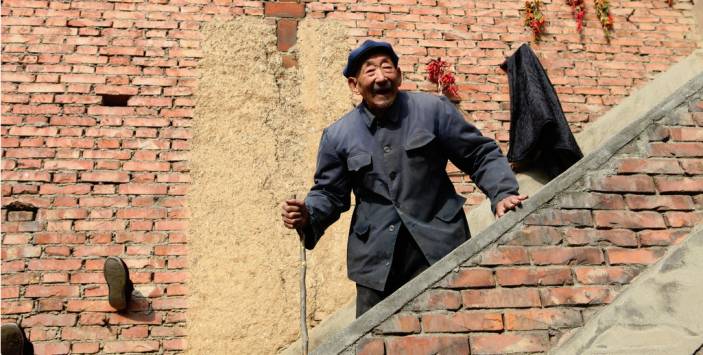“One in every two children born today will see their 104th birthday”. This was just one of many remarkable predictions and challenges that Al Gore placed in front of a packed auditorium last Thursday at the World Economic Forum meeting in Davos. It also illustrated how judicious a choice the organisers made for the event’s theme: “Reshaping of the World: Consequences for Society, Politics and Business”.
Deep, rounded discussions on ageing
The World Economic Forum is the only arena where the top representatives of governments, business and civil society can convene around key issues of today and tomorrow. It gives almost any discussion a depth and roundedness that, despite our best intentions, our organisations are unlikely to achieve on our own as we develop our policy positions.
 Take the discussion on dementia chaired by UK Cabinet supremo Lord Gus O’Donnell and prepared by the Director of WHO’s Department of Ageing and Life Course. It brought together the world’s top experts on Alzheimer’s and other dementias, key government and private healthcare providers, along with CEOs of major pharmaceutical companies and venture capital firms that invest in new medicines.
Take the discussion on dementia chaired by UK Cabinet supremo Lord Gus O’Donnell and prepared by the Director of WHO’s Department of Ageing and Life Course. It brought together the world’s top experts on Alzheimer’s and other dementias, key government and private healthcare providers, along with CEOs of major pharmaceutical companies and venture capital firms that invest in new medicines.
They were joined by experts on social security, senior politicians and top civil servants.
Inevitably, one leaves such a meeting with an incredible insight of the opportunities and obstacles in reducing the impact of one of the world’s most significant public health challenges.
Reshaping our world around population ageing
The implications of population ageing have been high on the agenda of the World Economic Forum for many years. It’s exactly the sort of issue the organisers pride themselves on – multi-dimensional, profound, complex and, above all, immediate: By 2030 there will be 1 billion people over the age of 60 – more than children under 10.
Dealing creatively and positively with the challenges of ageing populations is an urgent item on the global agenda – affecting many priority topics including the future of labour and consumer markets.
Some of the best-attended sessions were those looking at how Japan and China are changing as countries, as societies, markets and economies with demographic change and population ageing as recurrent themes.
The degree of success in reshaping our world around population ageing will define the civil, economic and political rights of an increasingly large segment of the world’s population. It’s not yet clear how institutions will adapt, particularly those delivering health, care and social security services.
What is sure, however, is that this reshaping will be felt by hundreds of millions of older people, and alter the relationship and expectations between state and individual in developed economies in the next few decades.
Future discussions on ageing must be truly global
I left Davos with two impressions – firstly, dealing with the implications of the triumph of longer lives will remain an urgent theme. We don’t yet have the answers, but many critical questions are being asked of politicians, businesses and society at large.
Second, and far more worryingly, almost all of the discussions focused on ageing in highly developed countries. This was also reflected in the representation at the specialist meetings (dementia, social security, longevity). I met and heard very few participants from Asia, Latin America, Central Europe, the Middle East and Africa at these sessions.
The recurrent theme was one of adaptation – how do social security and health systems, and formal labour markets evolve as demographic change takes root? Yet every discussion on adaptation began from the assumption that there were significant existing services, entitlements and systems in place.
But what about the hundreds of millions of older people in countries where little or no such services or social security architecture exist? By 2050, 80% of the world’s population over 60 will be living in developing countries. What sort of older age can they look forward to?
I left convinced that the most important contribution HelpAge International can make at the World Economic Forum is to advocate tirelessly to ensure future discussions around population ageing are truly global in scope.
Davos discussions must be relevant to the millions of older people that the HelpAge network is working with, and the hundreds of millions more.
More on global ageing populations
HelpAge’s Global AgeWatch Index is the first ever tool to measure the quality of life and wellbeing of older people around the world. Based on internationally comparable data, it ranks countries by how well their ageing populations are faring.
To see how your country ranks in the Index visit www.globalagewatch.org
